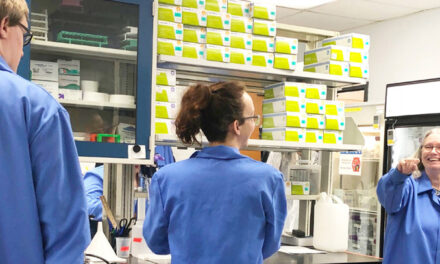Bio-Based Materials Support Sustainability Benefits
Long-Term Environmental Impact
There is a need in the market for a change in the way plastics are manufactured. It’s projected that by 2050, twenty percent of the world’s oil production will be dedicated to plastic production, and only a fifth of the plastics used today worldwide are recycled. The question is, how do we rethink our whole approach to plastics? This is where Earth Renewable Technologies (ERT) comes in to play.
Introducing Bio-based Polymeric Microfibers
Based in Brevard, NC, ERT aims to create conventional, recycled and biobased polymers. Their innovative microfiber concentrate additive technology supports performance and sustainability benefits in plastics modification.
Their polymeric microfiber can be used as an additive to strengthen polymers and improve their recyclability, providing solutions for any industry that has a desire to reduce their use of petroleum based plastics. ERT’s products not only strengthen the plastics they’re compounded with, they even offer a product that’s derived from plants and other renewable agricultural, marine, and forestry materials that recently passed American Society for Testing Materials (ASTM) standards for biodegradability.
Leveraging PCE as a Knowledge Resource
As a start-up, ERT had to answer some hard questions. Can our products be compounded mechanically? Does the finished product pass testing? Can it be priced competitively? Can it pass customer stability testing? That’s when ERT turned to the Polymer Center for Excellence (PCE) in Charlotte, NC, a partner of the North Carolina Manufacturing Extension Partnership. They decided to leverage PCE as a “knowledge resource” for processing and material development and assistance; product design and development; and property testing and failure analysis.
PCE was able to help ERT in the early phases of the company’s organizational development. “We didn’t have in-house production capabilities, so having access to a variety of instrumentation, both with compounding sample production
as well as the laboratory facility, was very attractive to us,” said Carmen Finnessy, ERT’s Director of Technology. “It was a much more cost effective route for us to come here and use a variety of twin screw sizes, for instance, that we wouldn’t have had access to anywhere else.”
Finnessy is responsible for fiber development and oversee its production through fiber spinning, compounding and sample production. “ERT’s fibers have a low bulk density that makes them notoriously difficult to feed. Being able to have hands-on access to PCE’s instrumentation and feeders has enabled us to develop a very specific production method,” said Finnessy.
Over the years, ERT has gone through iterations of how they’re going to best introduce their microfiber into a customer-facing product. “There have been many late nights of troubleshooting at PCE. Just having the flexibility to do so has been integral to the success of our product development,” said Finnessy.
Benefits of Working With PCE
The late nights may have been averted by using other compounding services that would have required ERT to send materials off and wait a couple months for the finished product, but that would have added additional development time to the process. Instead, what PCE has provided to Finnessy and her team, is a place to incubate as a company and the ability to leverage an established ecosystem for support. And because of that, product development cycle time has been cut and inefficiencies reduced. ERT has been able to remain flexible and react to changes quickly and pivot when needed, allowing them to get their products to market faster.
Driven by respect for the environment and manufacturing assistance from PCE, ERT’s technology focuses on the responsible use of the planet’s limited resources and is a viable alternative to traditional plastics manufacturing.




